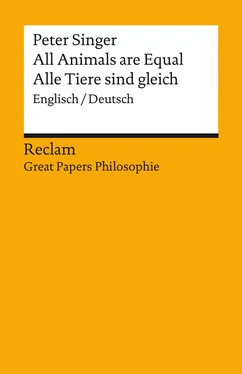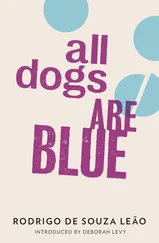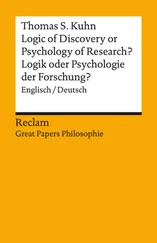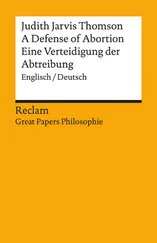As a first example, I take William Frankena’s well-known article “The Concept of Social Justice.”10 Frankena opposes the idea of basing justice on merit, because he sees that this could lead to highly inegalitarian results. Instead he proposes the principle that:
… all men are to be treated as equals, not because they are equal, in any respect, but simply because they are human. They are human because they have emotions and desires, and are able to think, and hence are capable of enjoying a good life in a sense in which other animals are not.
But what is this capacity to enjoy the good life which all humans have, but no other animals? Other animals have emotions and desires and appear to be capable of enjoying a good life. We may doubt that they can think – although the behavior of some apes, dolphins, and even dogs suggests that some of them can – but what is the relevance of thinking? Frankena goes on to admit that by “the good life” he means “not so much the morally good life as the happy or satisfactory life,” so thought would appear to be unnecessary for enjoying the good life; in fact to emphasize the need for thought would make difficulties for the egalitarian since only some people are capable of leading intellectually satisfying lives, or morally good lives. This makes it difficult to see what Frankena’s principle of equality has to do with simply being human. Surely every sentient being is capable of leading a life that is happier or less miserable than some alternative life, and hence has a claim to be taken into account. In this respect the distinction between humans and nonhumans is not a sharp division, but rather a continuum along which we move gradually, and with overlaps between the species, from simple capacities for enjoyment and satisfaction, or pain and suffering, to more complex ones.
Faced with a situation in which they see a need for some basis for the moral gulf that is commonly thought to separate humans and animals, but can find no concrete difference that will do the job without undermining the equality of humans, philosophers tend to waffle. They resort to highs sounding phrases like “the intrinsic dignity of the human individual”;11 they talk of the “intrinsic worth of all men” as if men (humans?) had some worth that other beings did not12 or they say that humans, and only humans, are “ends in themselves,” while “everything other than a person can only have value for a person.”13
This idea of a distinctive human dignity and worth has a long history; it can [113] be traced back directly to the Renaissance humanists, for instance to Pico della Mirandola’s Oration on the Dignity of Man . Pico and other humanists based their estimate of human dignity on the idea that man possessed the central, pivotal position in the “Great Chain of Being” that led from the lowliest forms of matter to God himself; this view of the universe, in turn, goes back to both classical and Judeo-Christian doctrines. Contemporary philosophers have cast off these metaphysical and religious shackles and freely invoke the dignity of mankind without needing to justify the idea at all. Why should we not attribute “intrinsic dignity” or “intrinsic worth” to ourselves? Fellow-humans are unlikely to reject the accolades we so generously bestow on them, and those to whom we deny the honor are unable to object. Indeed, when one thinks only of humans, it can be very liberal, very progressive, to talk of the dignity of all human beings. In so doing, we implicitly condemn slavery, racism, and other violations of human rights. We admit that we ourselves are in some fundamental sense on a par with the poorest, most ignorant members of our own species. It is only when we think of humans as no more than a small sub-group of all the beings that inhabit our planet that we may realize that in elevating our own species we are at the same time lowering the relative status of all other species.
The truth is that the appeal to the intrinsic dignity of human beings appears to solve the egalitarian’s problems only as long as it goes unchallenged. Once we ask why it should be that all humans – including infants, mental defectives, psychopaths, Hitler, Stalin, and the rest – have some kind of dignity or worth that no elephant, pig, or chimpanzee can ever achieve, we see that this question is as difficult to answer as our original request for some relevant fact that justifies the inequality of humans and other animals. In fact, these two questions are really one: talk of intrinsic dignity or moral worth only takes the problem back one step, because any satisfactory defence of the claim that all and only humans have intrinsic dignity would need to refer to some relevant capacities or characteristics that all and only humans possess. Philosophers frequently introduce ideas of dignity, respect, and worth at the point at which other reasons appear to be lacking, but this is hardly good enough. Fine phrases are the last resource of those who have run out of arguments.
In case there are those who still think it may be possible to find some relevant characteristic that distinguishes all humans from all members of other species, I shall refer again, before I conclude, to the existence of some humans who quite clearly are below the level of awareness, self-consciousness, intelligence, and sentience, of many non-humans. I am thinking of humans with severe and irreparable brain damage, and also of infant humans. To avoid the complication of the relevance of a being’s potential, however, I shall henceforth concentrate on permanently retarded humans.
Philosophers who set out to find a characteristic that will distinguish humans from other animals rarely take the course of abandoning these groups of humans by lumping them in with the other animals. It is easy to see why they do not. To take this line without re-thinking our attitudes to other animals would entail that we have the right to perform painful experiments on retarded humans for trivial reasons; similarly it would follow that we had the right to rear and kill [114] these humans for food. To most philosophers these consequences are as unacceptable as the view that we should stop treating nonhumans in this way.
Of course, when discussing the problem of equality it is possible to ignore the problem of mental defectives, or brush it aside as if somehow insignificant.14
This is the easiest way out. What else remains? My final example of speciesism in contemporary philosophy has been selected to show what happens when a writer is prepared to face the question of human equality and animal inequality without ignoring the existence of mental defectives, and without resorting to obscurantist mumbo jumbo. Stanley Benn’s clear and honest article “Egalitarianism and Equal Consideration of Interests”15 fits this description.
Benn, after noting the usual “evident human inequalities” argues, correctly I think, for equality of consideration as the only possible basis for egalitarianism.
Yet Benn, like other writers, is thinking only of “equal consideration of human interests.” Benn is quite open in his defence of this restriction of equal consideration:
... not to possess human shape is a disqualifying condition. However faithful or intelligent a dog may be, it would be a monstrous sentimentality to attribute to him interests that could be weighed in an equal balance with those of human beings ... if, for instance, one had to decide between feeding a hungry baby or a hungry dog, anyone who chose the dog would generally be reckoned morally defective, unable to recognize a fundamental inequality of claims.
This is what distinguishes our attitude to animals from our attitude to imbeciles. It would be odd to say that we ought to respect equally the dignity or personality of the imbecile and of the rational man ... but there is nothing odd about saying that we should respect their interests equally, that is, that we should give to the interests of each the same serious consideration as claims to considerations necessary for some standard of well-being that we can recognize and endorse.
Читать дальше












